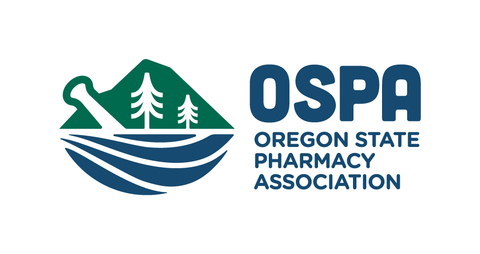New Study: Inequity in Pharmacy Benefit Managers’ Drug Pricing Practices in Oregon Raises Serious Questions
New Study: Inequity in Pharmacy Benefit Managers’ Drug Pricing Practices in Oregon Raises Serious Questions
Patients, pharmacists and providers in the state are disadvantaged by inequitable and worsening PBM business model
WEST LINN, Ore.--(BUSINESS WIRE)--The Oregon State Pharmacy Association (OSPA), in collaboration with 3 Axis Advisors, released a report today that illustrates the worrying tactics that pharmacy benefit managers (PBMs) – middlemen health insurance companies – employ to increase their profits at the expense of local pharmacies, taxpayers and patients. The study, Understanding Pharmacy Reimbursement Trends in Oregon, found that PBMs are reimbursing pharmacies at wildly different rates while at times charging Medicare and Medicaid astronomical prices.
“What we found is that PBMs – these middlemen in the drug supply chain – are essentially free to set the prices of drugs wherever and however they choose and, as a result, our state is rapidly losing small local pharmacies. That’s because these pharmacies aren’t being reimbursed at rates that allow them to keep their doors open, which raises serious questions about what PBMs are up to and why,” said OSPA Executive Director Brian Mayo.
One particularly troubling example detailed in the report shows that the state Medicaid program, which provides health care coverage to low-income Oregonians, was made to pay more than eight times the manufacturer’s asking price for a generic multiple sclerosis drug. If the payment was instead based on the manufacturer’s list price ($350) instead of what PBMs charged Medicaid on average ($2,928), the state could have saved approximately $1.9 million on this one drug alone.
“We have real concerns about what this means for patient health and safety,” said Lincoln Alexander, a local pharmacist from Portland and immediate past president of OSPA. “When we see these unfair markups, it means more and more patients are struggling to afford and adhere to the medications they depend on.”
Key findings of the report:
- Significant disparities exist in reimbursement between the pharmacies in the study and the broader retail pharmacy market in Oregon, particularly in already disadvantaged communities.
- Among the three broadly different payer types – Medicaid, Medicare and Commercial – PBMs operating in each of the segments are setting different incentives for pharmacies. For example, PBM reimbursements for the Oregon Medicaid Coordinated Care Organization program were associated with the lowest margins for pharmacies, creating incentives that may drive providers away from underserved communities.
- On a per-100 prescription basis, PBM reimbursement for the majority of claims (75 out of 100) dispensed at a typical retail Oregon pharmacy (as represented by those in the study) were insufficient to cover the pharmacy labor and drug costs.
- The PBM incentives embedded in the current system appear to reward and encourage higher drug prices at pharmacies, resulting in higher out-of-pocket costs for patients who obtain their medications through cost sharing or without insurance coverage at all.
“The findings speak for themselves in that we know that certain PBM industry practices have created incentives in the marketplace that can over-inflate the prices of medicines for plan sponsors and patients,” said Antonio Ciaccia, president of 3 Axis Advisors.
Michele Belcher, OSPA member and immediate past president of the National Community Pharmacists Association, said: “These trends are detrimental to patients in rural and minority communities who are most impacted by increasing disparities in accessing care. If you can no longer afford your medication or your only local pharmacy closes down, you quickly run out of options.”
While the report is focused on reimbursement trends in Oregon, the business practices analyzed are reflective of what other states are encountering.
OSPA’s Mayo added, “OSPA and the pharmacists we represent have been aware of these trends for years, but to see the numbers this research yielded is eye-opening. We need to make a change – not just here but across the US – to protect our pharmacies and help lower prescription drug costs at the pharmacy counter. The urgency of taking action couldn’t be more clear.”
The full report can be found here.
About the Oregon State Pharmacy Association
Oregon State Pharmacy Association (OSPA) was founded in 1889 as a professional trade association representing its member community of pharmacists, pharmacy technicians, pharmacy students and others who have an interest in advancing the practice of pharmacy through advocacy and education, and thereby improving the health of our fellow Oregonians.
Contacts
Oregon State Pharmacy Association
(503) 582-9055
